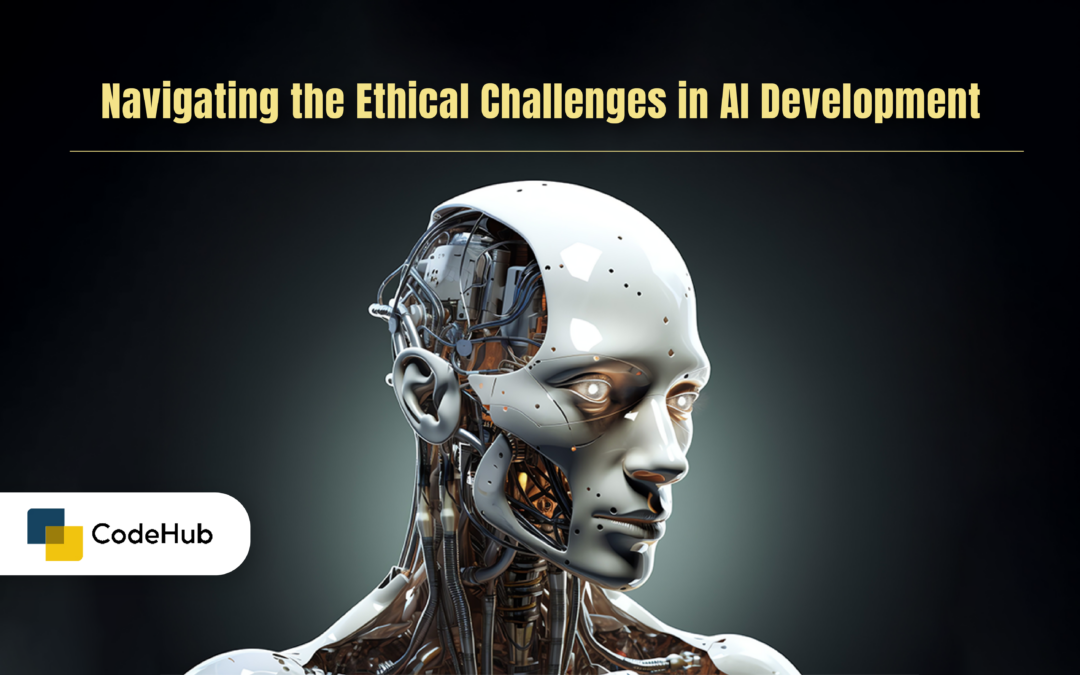Introduction
Artificial Intelligence (AI) has become a cornerstone of modern technology, driving innovation across various sectors such as healthcare, finance, transportation, and entertainment. However, the rapid advancement of AI technologies brings a host of ethical challenges that must be addressed to ensure these innovations benefit society responsibly. This blog post explores the key ethical issues in AI development and offers insights on how to navigate these challenges effectively.
Bias and Fairness
One of the most significant ethical concerns in AI development is bias. AI systems learn from data, and if the training data is biased, the AI can perpetuate and even amplify these biases. This can lead to unfair treatment of individuals based on race, gender, age, or other attributes.
Addressing Bias
To mitigate bias, developers must ensure diverse and representative datasets. Regular audits and bias detection tools can help identify and rectify biases in AI models. Moreover, involving diverse teams in the development process can provide varied perspectives that help in recognizing and addressing biases.
Transparency and Accountability
AI systems often operate as “black boxes,” making decisions without providing clear explanations. This lack of transparency can be problematic, especially in critical areas like healthcare and criminal justice, where understanding the rationale behind AI decisions is crucial.
Ensuring Transparency
Developers should strive to create AI systems that are interpretable and explainable. Techniques such as Explainable AI (XAI) can help make AI decisions more transparent. Additionally, establishing clear accountability frameworks ensures that stakeholders know who is responsible for the outcomes of AI systems.
Privacy and Security
The use of AI often involves processing large amounts of personal data, raising concerns about privacy and data security. Unauthorized access or misuse of this data can lead to significant harm to individuals.
Protecting Privacy
AI developers must implement robust data protection measures, including encryption, anonymization, and secure data storage. Compliance with regulations such as the General Data Protection Regulation (GDPR) is essential to safeguard personal information. Moreover, adopting privacy-by-design principles ensures that privacy considerations are integrated into the development process from the outset.
Ethical Use of AI
The deployment of AI technologies raises questions about their ethical use. For instance, the use of AI in surveillance can infringe on civil liberties, and autonomous weapons pose significant ethical dilemmas.
Developing Ethical Guidelines
Organizations should establish clear ethical guidelines for AI development and deployment. These guidelines should be aligned with broader societal values and ethical principles. Engaging with ethicists, policymakers, and the public can help create a consensus on the responsible use of AI.
Social and Economic Impact
AI has the potential to disrupt labor markets, leading to job displacement and economic inequality. The automation of tasks traditionally performed by humans can result in significant social and economic challenges.
Addressing Economic Displacement
Governments and organizations should invest in reskilling and upskilling programs to help workers adapt to the changing job landscape. Additionally, implementing policies that promote inclusive growth and equitable distribution of the benefits of AI can help mitigate negative social impacts.
Long-Term Ethical Considerations
As AI continues to evolve, it is crucial to consider its long-term ethical implications. This includes contemplating the potential for superintelligent AI and the societal changes it may bring.
Promoting Ethical AI Research
Fostering a culture of ethical AI research involves encouraging interdisciplinary collaboration and long-term thinking. This includes exploring the implications of AI from philosophical, sociological, and technological perspectives to ensure a holistic understanding of its impact.
Conclusion
Navigating the ethical challenges in AI development requires a proactive and collaborative approach. By addressing issues of bias, transparency, privacy, ethical use, and social impact, developers and organizations can ensure that AI technologies are developed and deployed responsibly. Embracing ethical principles in AI development not only builds trust with stakeholders but also paves the way for innovations that truly benefit society.
As we continue to advance in AI, it is imperative to keep ethics at the forefront of our efforts. By doing so, we can harness the transformative potential of AI while safeguarding against its risks, creating a future where technology serves humanity in the most beneficial and equitable manner.

